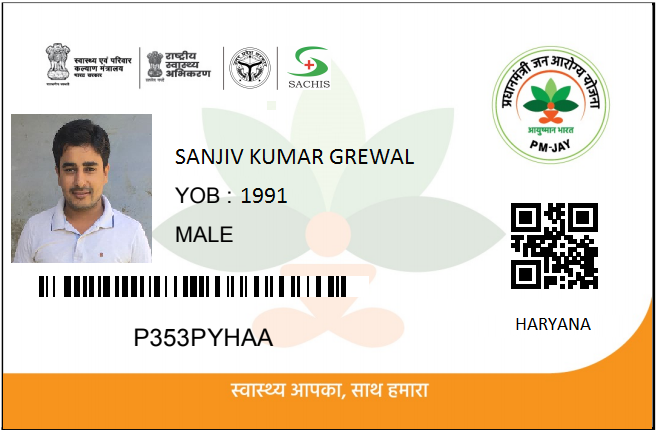In a significant move to improve healthcare access for the elderly, Prime Minister Narendra Modi has introduced a dedicated Ayushman Card for senior citizens aged 70 and above. This initiative is designed to provide comprehensive health coverage for older adults, helping them manage medical expenses without financial strain. The program, managed by the beneficiary NHA (National Health Authority), ensures that elderly citizens can access high-quality healthcare at empanelled hospitals across India.
What is the Ayushman Card for seniors?
The Ayushman Card for seniors is a special extension of the Ayushman Bharat Pradhan Mantri Jan Arogya Yojana (PMJAY), India’s flagship health insurance scheme. This new feature specifically targets citizens over the age of 70, providing them with additional support tailored to the healthcare needs of older adults. The beneficiary NHA has structured this program to offer cashless and paperless healthcare services, making it easier for seniors to access treatments and manage their health.
Key benefits of the Ayushman Card for seniors
The Ayushman Card offers numerous benefits to senior citizens, ensuring they receive the necessary healthcare without financial obstacles. Here are some of the key advantages:
- High coverage limit: Seniors can access coverage of up to Rs. 5 lakh per family per year, covering hospitalisation, surgeries, and other critical treatments.
- Cashless treatment: The Ayushman Card allows seniors to receive cashless treatment at empanelled hospitals, reducing the financial burden on families during medical emergencies.
- Wide hospital network: The NHA has empanelled a large number of hospitals, including public and private facilities, to make healthcare services accessible for cardholders nationwide.
- Pre-existing condition coverage: Unlike many insurance schemes, the Ayushman Card covers pre-existing conditions, a crucial benefit for elderly citizens with chronic health issues.
How to apply for the Ayushman Card
Seniors interested in applying for the Ayushman Card can follow a simple process. Here’s a step-by-step guide:
Step 1: Check eligibility
To qualify for the Ayushman Card, applicants must be aged 70 or above and meet specific economic criteria as outlined by the NHA. Eligibility can be verified on the official PMJAY website or by visiting a Common Service Centre (CSC).
Step 2: Gather necessary documents
Applicants need to provide identification and age proof to confirm their eligibility. Commonly required documents include Aadhaar, voter ID, and any document verifying age.
Step 3: Register through the PMJAY portal or CSC
Eligible individuals can apply for the Ayushman Card online through the PMJAY website or in-person at a CSC. The CSCs are set up to assist applicants with the registration process, especially those who may not have internet access or familiarity with online applications.
Step 4: Receive the Ayushman Card
Once the application is approved, seniors receive their Ayushman Card, which they can use to access the scheme’s healthcare benefits at empanelled hospitals.
Services covered under the Ayushman Card for seniors
The Ayushman Card provides extensive healthcare coverage tailored to the needs of elderly citizens:
- Hospitalisation and surgeries: The card covers hospitalisation costs, including room charges, nursing, and surgeries, which are essential for seniors facing serious health conditions. This coverage ensures that elderly citizens have access to quality medical facilities without the worry of high expenses.
- Medication and diagnostic tests: Essential medications and diagnostic tests during hospitalisation are included in the coverage, ensuring seniors receive the necessary treatments and accurate diagnoses. By covering these essential services, the Ayushman Card enables older adults to access complete medical support in a timely manner.
- Post-hospitalisation expenses: Some post-hospitalisation expenses, such as follow-up visits, physiotherapy sessions, and additional tests, are also covered. This support helps seniors continue their recovery smoothly without financial barriers, promoting long-term well-being and improved quality of life.
Why the Ayushman Card is essential for elderly citizens
As people age, they often face increasing health challenges, which can lead to high medical expenses. The Ayushman Card is designed to provide financial relief, enabling seniors to access the care they need without financial hardship. With support from the beneficiary NHA, this initiative offers a comprehensive solution, ensuring older adults can maintain their health and quality of life.
The Ayushman Card’s network of empanelled hospitals also ensures that senior citizens receive treatment close to home, reducing the need for extensive travel, which can be difficult for the elderly.
Conclusion
The Ayushman Card initiative for seniors, introduced by PM Modi, is a landmark development in India’s healthcare system. By targeting citizens aged 70 and above, this program ensures that elderly individuals have access to high-quality healthcare services through the beneficiary NHA network. With cashless treatment, broad coverage, and easy access to hospitals, the Ayushman Card is set to become an essential resource for India’s senior population.
For senior citizens, applying for the Ayushman Card could be a key step toward better healthcare access and financial security in their later years.
